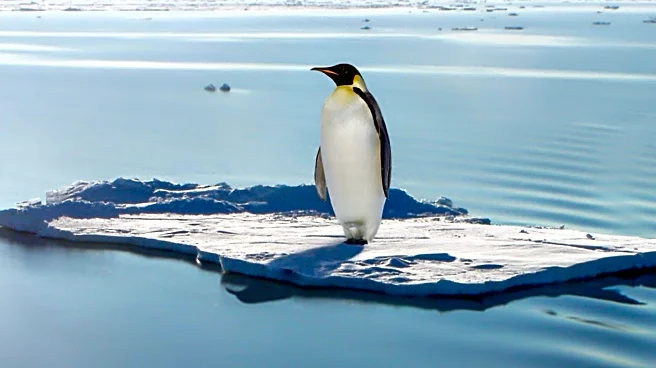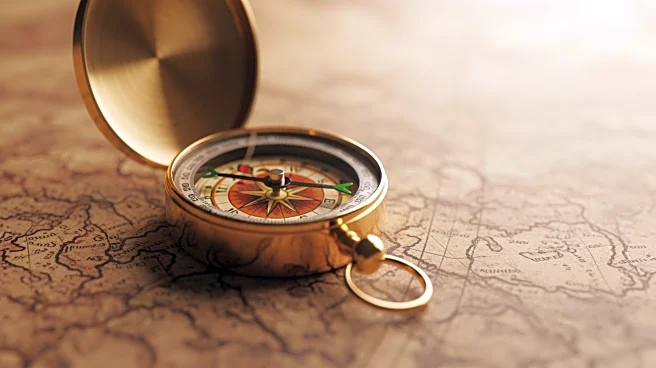What's Happening?
Explorer Colin O'Brady is set to embark on a challenging solo expedition across Antarctica, aiming to break records by traversing the Ross Ice Shelf. The journey spans 1,780 miles and is expected to last
110 days. O'Brady's sled will weigh approximately 500 pounds, with nearly 400 pounds dedicated to food and fuel, necessary to sustain him through the harsh conditions. He anticipates burning 10,000 calories daily, which will result in significant weight loss. O'Brady's expedition is inspired by historical figures like Roald Amundsen and Henry Worsley, the latter of whom died attempting a similar feat. Despite past controversies regarding his achievements, O'Brady remains focused on the challenge ahead, emphasizing the isolation and physical demands of the journey.
Why It's Important?
O'Brady's expedition highlights the extreme challenges and risks associated with polar exploration. His journey underscores the human spirit's drive to push boundaries and achieve new milestones. The expedition also draws attention to the harsh realities of climate and terrain in Antarctica, a region largely untouched by human activity. O'Brady's endeavor may inspire future explorers and contribute to the understanding of human endurance in extreme environments. Additionally, the expedition is being documented by Netflix, potentially increasing public interest and awareness of polar exploration.
What's Next?
O'Brady will share updates through a Starlink Mini satellite unit, allowing him to transmit daily messages and photos. His progress will be closely monitored by a team based in Chile and the U.S., including logistical and media support. The expedition's success could lead to further exploration initiatives and inspire others to undertake similar challenges. The documentary by Netflix, directed by James Reed, will provide a detailed account of O'Brady's journey, potentially influencing public perception and interest in polar expeditions.
Beyond the Headlines
O'Brady's expedition raises questions about the ethical and environmental implications of human activity in pristine regions like Antarctica. His commitment to leaving no trace and respecting the landscape highlights the importance of sustainable exploration practices. The journey also reflects broader themes of resilience and the pursuit of personal goals, offering insights into the psychological and emotional aspects of extreme isolation.










